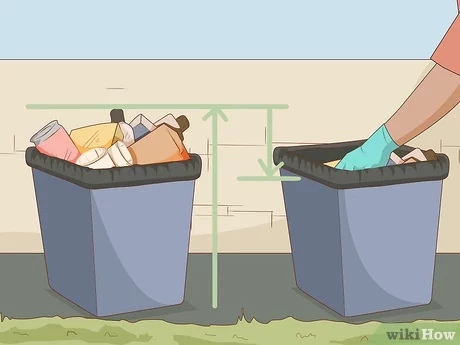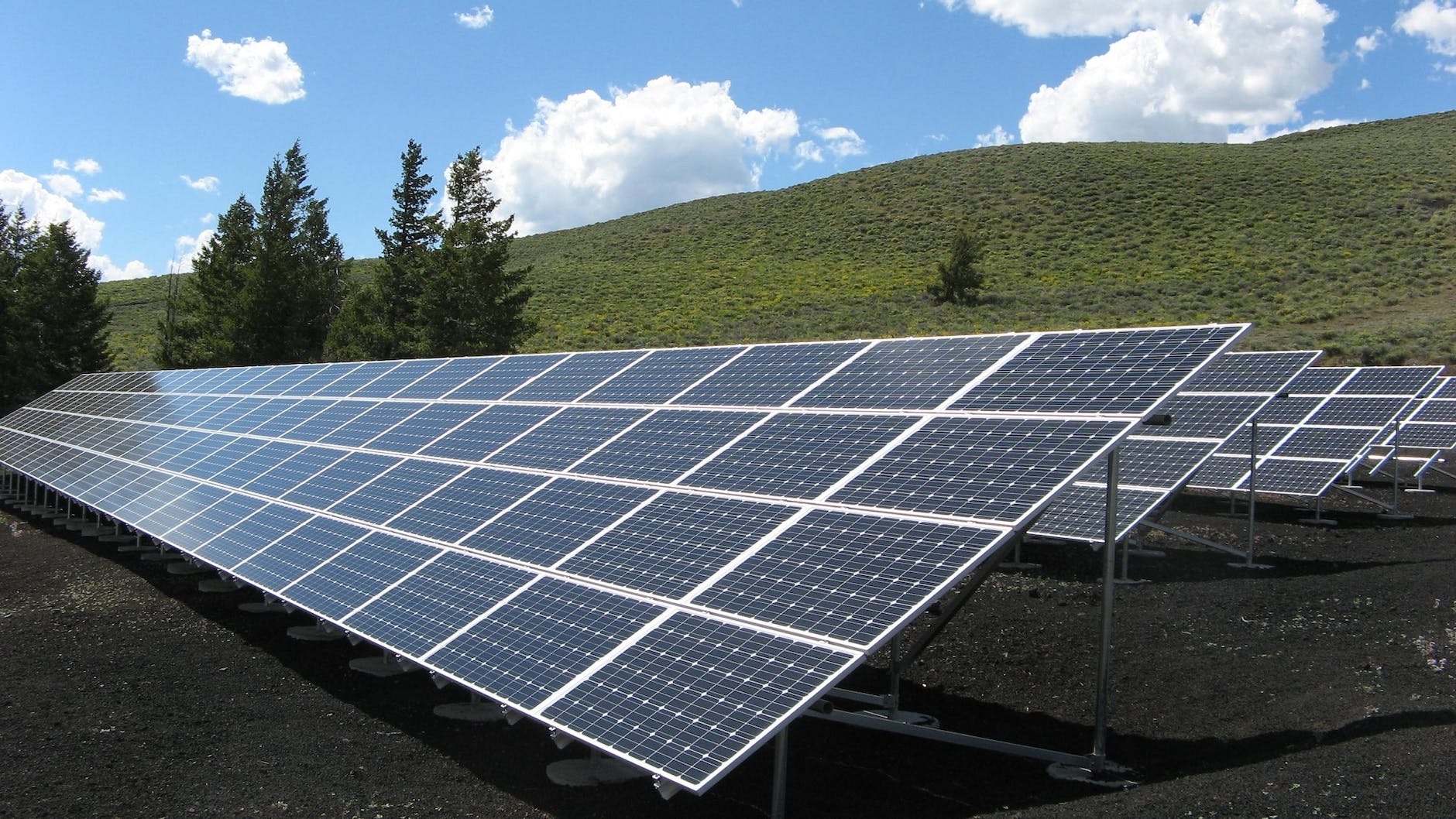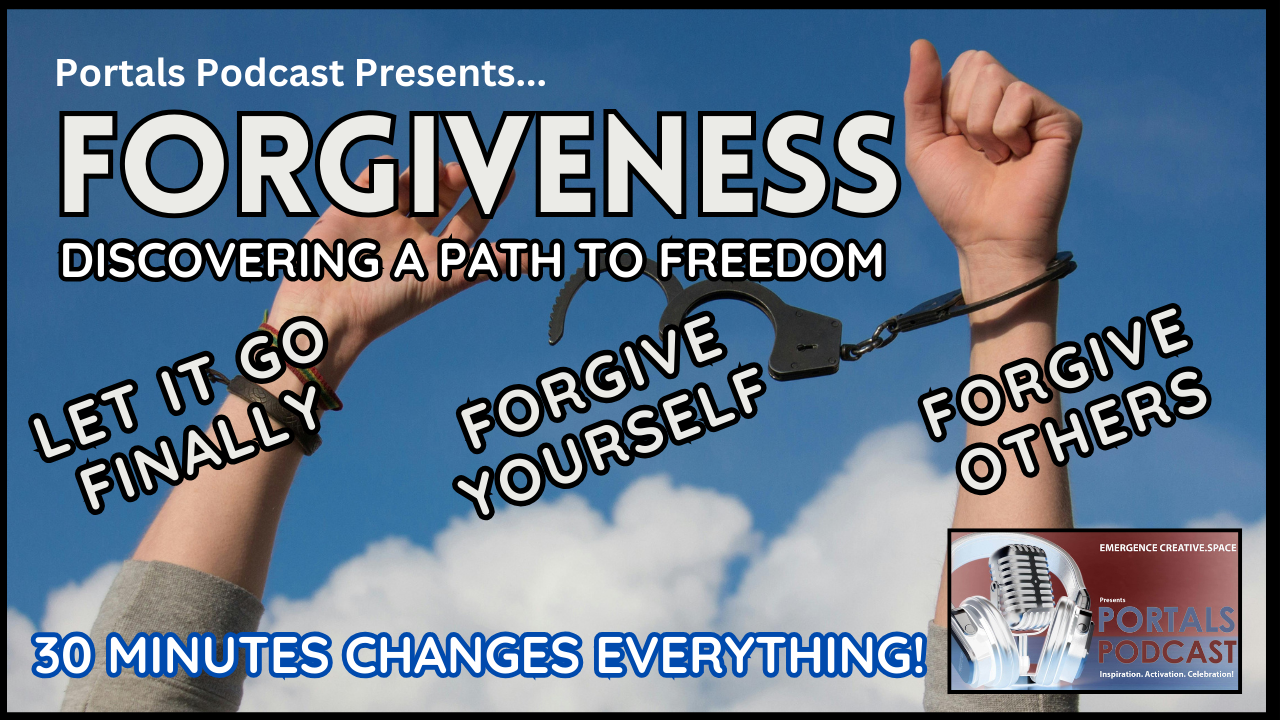
Off the top of your head, do you know how much trash your throw away each year?
Well, According to the EPA, the average American produces 4.9 pounds of trash per day which equates to roughly 1,800 pounds of waste per person annually. How gross is that? I am not suggesting that you are that wasteful, but ask yourself… are you? Could you be less wasteful? I think just about all of us could be.
This article offers practical suggestions and easy-to-follow instructions to help you navigate the path to zero-waste living.
So from the jump, how many reusable jars do you throw away a year? Of course that’s rhetorical, but I think that’s a great place to start. All those jars that could be used for other things…
Let’s continue.
1.The 5 R’s are the Foundation: Refuse, Reduce, Reuse, Recycle, Rot
These five R’s are the cornerstone of zero-waste living. “refuse” and “reduce” are paramount. Start by consciously refusing single-use items like plastic bags, straws, and disposable coffee cups.
Carry your own reusable versions – a water bottle, coffee mug, shopping bags, and cutlery set are essential zero-waste companions. Reduce consumption by buying only what you need and choosing products with minimal packaging.

2. Conquering the Grocery Store: Package-Free Shopping
Grocery stores are often a minefield of plastic and excessive packaging. The key is to plan ahead and be resourceful. Embrace local farmers’ markets. They offer fresh, seasonal produce with minimal packaging.
Bring your own reusable bags, containers, and even egg cartons. Seek out bulk stores where you can purchase grains, nuts, spices, and other staples without the plastic wrapping. Bring your own jars and containers to fill. Ditch the chemical-laden, plastic-bottled cleaners. Making your own is surprisingly easy and cost-effective.
A simple all-purpose cleaner can be made with vinegar, water, and essential oils. Numerous recipes are available online. Before you go to the store, make a list. This helps you avoid impulse buys and reduces the chance of purchasing unnecessary items. Read labels carefully and choose products with minimal or recyclable packaging.
3. Composting in Small Spaces: Turning Trash into Treasure
Composting, even in a small apartment, is entirely possible. It significantly reduces food waste and creates nutrient-rich soil for houseplants or community gardens.
Bokashi composting is ideal for urban dwellers. It uses a special bran (Yes, from cereals) inoculated with beneficial microbes to ferment food waste, including meat and dairy, which traditional composting avoids. Bokashi bins are compact and can be kept indoors.
Worm composting, or vermicomposting, uses worms to break down organic waste. Worm bins are relatively small and can be kept in a closet or under the sink. It’s a great way to compost food scraps, coffee grounds, and even shredded paper. If you don’t have space for composting at home, look for community composting programs in your city. Many cities have drop-off locations or even curbside composting services.
4. Recycling: Navigating the System
Recycling programs can be complex. It’s crucial to understand your city’s specific guidelines to ensure your recyclables are properly processed.
Familiarize yourself with the recycling symbols and codes on packaging. This will help you determine what can be recycled in your area. Rinse out containers before recycling them.
Contaminated recycling can end up in landfills. Be sure to remove any non-recyclable items from your recycling bin. If your city’s recycling program is lacking, get involved! Contact your local representatives and advocate for improvements.

Separate your recyclables into the appropriate categories (paper, plastic, metal, glass).
5. Building Community: Sharing and Supporting
Zero-waste living is more than just individual actions; it’s about community engagement. Connect with like-minded individuals in your city. These groups often organize workshops, share tips, and advocate for sustainable policies.
Patronize businesses that prioritize sustainability and offer package-free options. Organize clothing swaps, tool libraries, or community gardens in your neighborhood. Sharing resources reduces consumption and waste. Talk to your friends, family, and neighbors about zero-waste living. Share what you’ve learned and inspire them to make changes.
6. Navigating the Challenges: Imperfection is Okay
Living a completely zero-waste lifestyle in a city is challenging. Don’t be discouraged if you’re not perfect. Every small step you take makes a difference. Focus on progress, not perfection. Choose a few areas to focus on initially. Once you’ve mastered those, you can tackle other aspects of zero-waste living. Transitioning to a zero-waste lifestyle takes time.
Don’t get discouraged if you slip up occasionally. The goal is to reduce waste, not eliminate it entirely. Even small changes can have a big impact.
7. The Power of Policy: Advocating for Change
Individual actions are important, but systemic change is also necessary. Advocate for policies that support zero-waste living in your city. Let your local officials know that you support policies that reduce waste and promote sustainability.
Donate to or volunteer with organizations that are working to create a more sustainable city. Choose candidates who prioritize environmental protection and zero-waste initiatives.
Zero-waste living in an urban environment is a journey, not a destination. By embracing the principles of refuse, reduce, reuse, recycle, and rot, and by engaging with your community, you can make a significant impact.
Even small changes can contribute to a more sustainable and less wasteful city. Start today, and you’ll be amazed at the difference you can make.
8. Beyond the Home: Zero-Waste on the Go
Urban life often involves being out and about. Maintaining a zero-waste lifestyle while commuting, working, or socializing requires a bit more planning, but it’s definitely achievable.
- Pack Your Lunch: Instead of relying on takeout containers and disposable cutlery, pack your lunch in reusable containers. A bento box or a set of stackable containers can be a great investment. Don’t forget your reusable cutlery set and a cloth napkin.
- Hydrate Sustainably: Carry a reusable water bottle with you at all times. This will help you avoid buying bottled water, which is a major source of plastic waste. Many cities have refill stations where you can top up your bottle for free.
- Coffee on the Go: Bring your own reusable coffee cup to your favorite cafe. Many coffee shops offer discounts to customers who bring their own cups.
- Snack Smart: Pack your own snacks in reusable containers or bags. This will help you avoid buying individually wrapped snacks, which are often packaged in plastic.
- Mindful Commuting: Consider your transportation options. Walking, cycling, or using public transportation are more sustainable choices than driving a car. If you do need to drive, consider carpooling or using a ride-sharing service.
9. Embracing Minimalism: Less is More
A minimalist lifestyle often goes hand-in-hand with zero-waste living. By consciously reducing your consumption and owning only what you need, you can minimize waste and simplify your life.
- Declutter Regularly: Go through your belongings regularly and declutter items you no longer use or need. Donate or sell unwanted items instead of throwing them away.
- Buy Less: Before you buy something new, ask yourself if you really need it. Avoid impulse purchases and focus on buying high-quality, durable items that will last.
- Borrow or Rent: Consider borrowing or renting items you only need occasionally, such as tools or party supplies.
- Mend and Repair: Instead of throwing away damaged items, try to mend or repair them. Learning basic sewing or repair skills can save you money and reduce waste.
10. The Future of Zero-Waste: Innovation and Technology
As awareness of environmental issues grows, new innovations and technologies are emerging to support zero-waste living.
- Sustainable Packaging: Look for products packaged in biodegradable or compostable materials. Support companies that are developing innovative packaging solutions.
- Zero-Waste Apps: Several apps are available to help you find zero-waste stores, restaurants, and other resources in your area.
- Smart Composting Systems: New smart composting systems are making it even easier to compost in small spaces. These systems often automate the composting process and provide valuable data on your composting efforts.
- The Circular Economy: The concept of a circular economy, where resources are kept in use for as long as possible, is gaining traction. 1 This approach aims to minimize waste and create a more sustainable future.
Zero-waste living in the city is a continuous learning process. Be patient with yourself, celebrate your successes, and don’t be afraid to experiment. By making conscious choices and engaging with your community, you can contribute to a more sustainable and less wasteful urban environment. Every action, no matter how small, makes a difference.
Embrace the journey, and you’ll discover that zero-waste living is not only good for the planet, but also enriching for your life.
Here’s a challenge that you may be into, if you are serious about reducing your waste that is…
On the day before you are to take your trash out weigh it. It’s pretty easy to do, take our your scale and weight yourself first, write that number down. Then pick up the trash bag and weigh yourself again.
Subtract the smaller number from the larger one. Repeat this process for each bag you have.
Now, using the tips and tricks in this article for one month, do the same thing you just did. Hopefully your efforts will have reduced your waste impact considerably. Not only will you feel better about not being such a wasteful human… you will most likely have saved some loot in the process.


